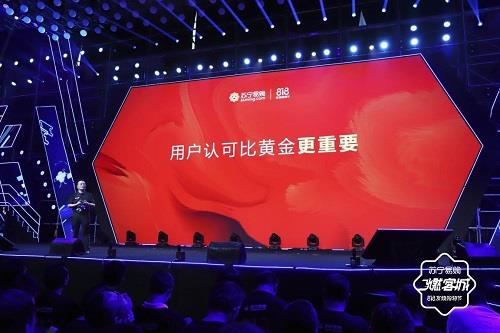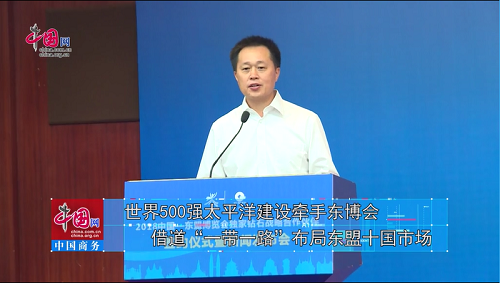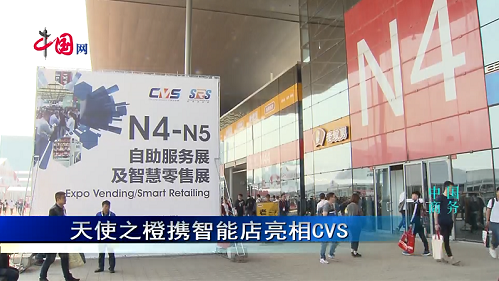
Shanghai's plan to build itself into a science and technology innovation hub with global influence is what the world awaits. As an international metropolis with the latest consumption concept and consumer market, Shanghai has become a paradise for high-tech entrepreneurs and saw an incubator boom for innovation and entrepreneurship. Recently, Zhu Zhenghong, director of Shanghai Science and Technology Innovation Center, said,“SMEs with core competitiveness such as technological innovation, hard technology and black technological innovation will have great opportunities in the future.”
Statistics from this June show that Shanghai now is home to over 500 co-working spaces and incubators, and over 12,000 high-tech small and medium-sized enterprises (SMEs) have settled here. With the new round of deepening reform and a series of policies issued, a preferential environment for mass entrepreneurship and innovation has been created by forming a complete chain of start-up incubation services, presenting unprecedented potentials and opportunities for domestic start-ups to go global and attracting foreign-funded start-ups.
Shanghai attracts foreign-funded SMEs with global business environment
“Shanghai, as an international city, has already built a favorable environment for different kinds of enterprises to develop, which will also present more chances in the future,” Zhu said.
Shanghai has always been an open city, a city that today is characterized by reaping the benefits of preferential policies to attract foreign investment.
There are also preferential policies for SMEs’ development. In recent years, Shanghai has released series of policies, including“22 Policies for the Promotion of Scientific and Technological Innovation,”“Outline of the 13th Five-Year Plan for Shanghai Science and Technology Innovation” and“30 Policies for Attracting the Talents,” in a bid to accelerate the process of building itself into a science and technology innovation center with global influence. Measures were also taken to attract overseas enterprises, talents and foreign investment.
Since the beginning of this year, China has also strengthened its policy support for foreign investment. Several key documents, such as the“Notice of the State Council on Several Measures for Opening Wider to the Outside World and Making Active Use of Foreign Investment 2017” and the“Notice of the State Council on Several Measures for Promoting Growth of Foreign Investment,” have been promulgated, offering more benefits brought by the system and policies.
Leading in opening-up and reform and innovation, Shanghai now is still at the forefront of exploring and practicing.
On Apr. 27, Shanghai Municipal Government released“Opinions of Shanghai Municipal People's Government on Further Expanding Opening-up and Establishing a New System of Open Economic.” A total of 33 opinions mainly includes three parts--expanding opening up, creating an environment for fair competition, and pooling more foreign investment, in a bid to further leverage foreign capital and foster a conductive business environment.
On Oct.17, Shanghai Municipal Government promulgated“Several Opinions of the Shanghai Municipal People's Government on Further Supporting Foreign-invested Research and Development Centers to Participate in Shanghai's Construction of a Science and Technology Innovation Center with Global Influence,” which clearly pointed out the greater role that foreign capital will play in S&T innovation system. Shanghai will support the development of top research centers in fields, such as improving trade environment, intellectual property protection, talents policies.
Attracted by these preferential policies, an increasing number of foreign-funded enterprises have started business in Shanghai.
According to the statistics from the Shanghai Municipal Commission of Commerce, the total amount of contracted foreign capital and that actually used in running business reached 411.947 billion dollars and 218.811 billion dollars respectively, with a combined number of over 90,000 projects invested with foreign capital. The 40,000 foreign-funded enterprises in Shanghai contributed to 27 percent of the total Shanghai GDP growth, 34 percent of the tax revenue, 66 percent of the total volume of foreign trade and 53 percent of the research and development investment by industrial enterprises above designated size. Particularly, over 400 foreign-funded R&D centers play a unique and key role in building Shanghai into the national science and technology innovation center.
Shanghai‘nests’ for foreign-funded high-tech SMEs
Encouraged by both the flexible market mechanism and preferential policies, many foreign-funded SMEs begin to actively seize the Chinese market. People from overseas also choose to start up business in Shanghai.
Inevitably, obstacles and difficulties amid political, economic and cultural differences will directly affect the“survival” of these foreign-funded SMEs, requiring guidance and support from the government.
Since a long time ago, Shanghai S&T Innovation Center has directly invested in over 10 incubators for high-tech companies, such as Yangpu, HuiGu, Kehui and Shanghai Integrated Circuits Design Incubator, covering the whole city, in a bid to press ahead in the direction of specialization, standardization and internationalization. Shanghai also mulled over policies to develop the overseas projects of innovation and entrepreneurship. Zhu said that 18 co-working spaces including Yangpu S&T Entrepreneurship Center, XNode, 23Seed and other 5 institutions, such as Shanghai Overseas Returned Scholars Association and Pudong International Talent City. Shanghai initiated the“first top for start-up” project, through business cooperation, providing relevant services for companies to run cross-border business and implement projects..
“We are trying to create a‘menu’ platform that can match overseas start-ups with relevant partners and resources,” said Zhu, adding that the platform already saw many successful cases.“One of the examples is a Germany high-tech SME specializing in detection by nuclear magnetic resonance technology, which is a relevant cutting-edge and unpopular technology. Our professional incubators helped it to contact the clinical and medical resources, and build business relations, etc.”
Statistics from this June show that Shanghai now is home to more than 500 co-working space and incubators, which attracts over 12,000 high-tech SMEs to settle in, supporting 10,000 entrepreneurs each year.
Shanghai encourages the whole industry to go global
Shanghai has not only introduced foreign investment, but also implemented the"going out" policy to invest overseas. With the support of many policies, SMEs in Shanghai usher in a crucial state of“going global.”“We have established cooperation with France and the U.K., and promoted the‘soft landing’ project. Through the connection between incubators at home and abroad, we pushed Chinese enterprises to go global,” Zhu said, adding that they also provide services such as market research, coordinated procedures to set up a new business, and expanding potential business partners.
For technological innovation enterprises, going global is facing the challenge of intellectual property rights.“Intellectual property is a standard service for every incubator in Shanghai, with a lawyer specializing in how to do it. Therefore, we must first understand the situation in each country, and then decide where to go."
Zhu pointed out that national boundaries have been broken in an internet era, but the question is how to go global. The choice of path plays a key role in going global."Language barrier is not the challenge. The problem lies in the way and method of thinking, and whether our enterprisers have the global vision."
Zhu Zhenghong believed that, in terms of“going global”, Shanghai SMEs can draw on the“going-in” experience of previous foreign companies. The current problem is that, some SMEs now find themselves facing difficulties in going global, without the support of the entire industry in China going global.
"In the future, large enterprises and leading enterprises should go global with SMEs, bringing the whole industry to go out,” Zhu said.
In addition, Shanghai is home to a large number of state-owned enterprises. These state-owned enterprises enjoy more successful experience in going global and overseas investment, playing a major role in leading Shanghai's high-tech SMEs.
Whether in attracting the foreign-funded S&T startups to Shanghai or encouraging Shanghai’s S&T startups to go global, the role of"Shanghai opportunity" will be verified again and again.(Wu Fangwei,Chen Junma)







